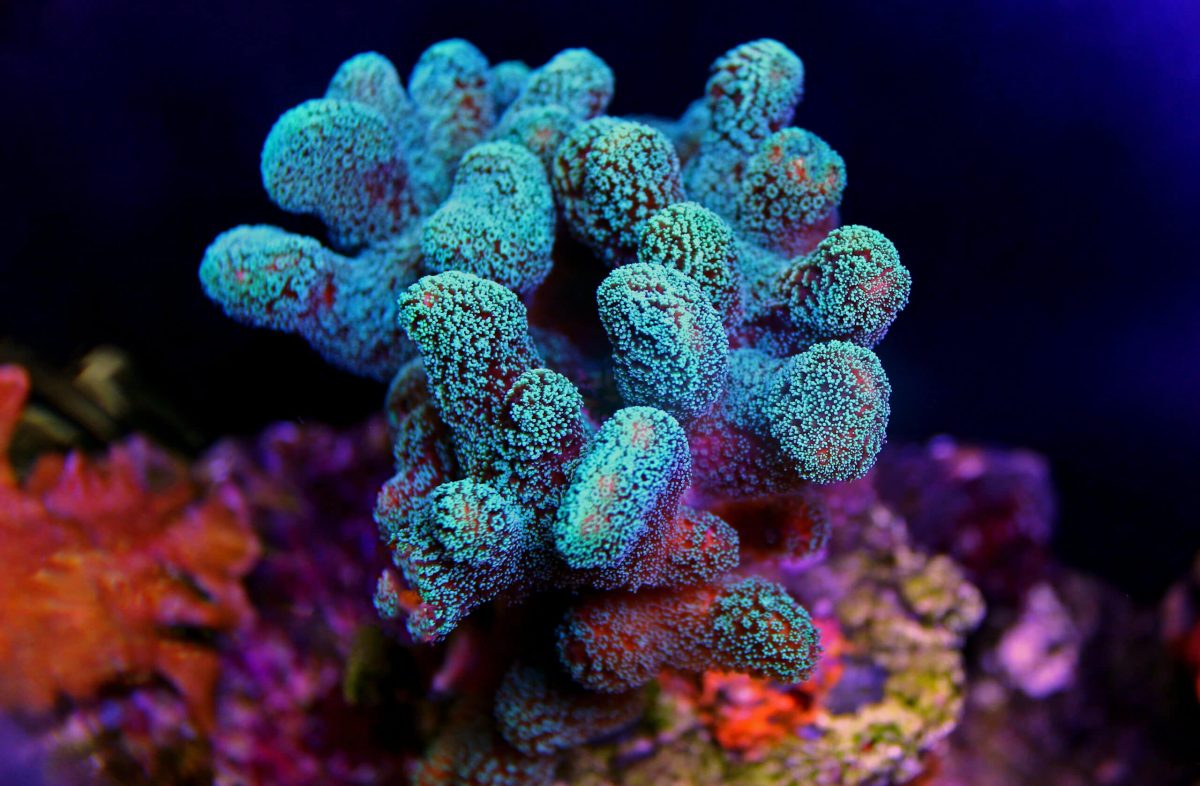How probiotics and science may save our coral reefs
You may have noticed that probiotics such as kefir, kombucha and kimchi are becoming more common on the shelves of supermarkets. This is due to the growing evidence that probiotics improve our gut health, immune function and can even be used as a treatment option for gastrointestinal disorders. However, the benefits of probiotics are not just limited to humans. Probiotics are now moving beyond the grocery store shelves and into the marine realm, particularly for coral reefs. Coral reefs are among the most valuable ecosystems on the planet, providing a wide range of social, economic and ecological services that are critical to humans.
According to the Reefs at Risk Revisited Report put together by the World Resources Institute, reefs provide essential habitats for an astonishing 25% of all marine life, earning them the well-deserved title of the ‘rainforests of the sea’. Despite these vital services, coral reefs are seriously threatened by rising sea surface temperatures, ocean acidification and local stressors such as overfishing. These stressors have resulted in approximately 75% of the world’s coral reefs being rated as threatened.
But all is not lost as scientists have found hope for the future of coral reefs in a surprising form. Probiotics are live microorganisms that, when consumed, confer health benefits to the host and corals, like humans, harbour an enormous reservoir of microorganisms within them which help to maintain their gut health and general well-being. Consequently, the question arose: would probiotic treatment be successful in improving coral resilience? The answer is that it’s quite possible!
Coral Probiotics
Microbiologist Raquel Peixoto and her team at the Federal University of Rio de Janeiro, Brazil, decided to investigate this question and the potential of coral probiotics. The first step was to isolate potentially beneficial bacteria from corals in order to form the probiotic mixture. Next, corals were inoculated with beneficial microorganisms, similar to feeding humans a dose of probiotic kefir, and then placed in stressed or control conditions. After 26 days, corals given the probiotic treatment were healthier and less stressed than those that had not received treatment. These initial results suggest that coral probiotics may be a promising novel approach to increase the resilience of corals, minimize coral mortality and maximize coral health.
It is not only corals that have taken to coral probiotics, but also the general public, as Peixoto’s project was awarded the ‘People’s Choice Award’ at the ‘Great Barrier Reef Foundation’s Out of the Blue Box Reef Innovation Challenge’. The funds from this challenge, which was supported by the The Tiffany & Co. Foundation, will help to drive the research forward, overcome potential limitations and investigate how probiotics may be delivered on a reef scale. Peixoto’s team is currently exploring various methods to deliver the probiotics onto the reef, including bacterial parcels to target specific reef areas.
Great Barrier Reef Foundation Managing Director Anna Marsden stated in a June 2020 press release that science like this provides hope for the future of the Great Barrier Reef . “People may be surprised to find out that just like us, corals rely on a host of good bacteria to help keep them healthy and, just like us, the balance between good and bad bacteria is often disrupted in times of stress,” Ms Marsden said.
The Wider Use of Probiotics
As the benefits of probiotics become well-established, their use has been extrapolated into other organisms. Probiotics are now administered widely in aquaculture to prevent disease outbreaks, improve animal growth and to control water quality. Beyond aquaculture, probiotics are also used in agricultural practices to improve the resilience of crops to varying environmental conditions in a similar method to coral probiotics.
The Future
Pioneering solutions, such as coral probiotics, are possible solutions to bolstering the resilience of corals and more research is needed in the multi-pronged approach to save the coral reefs. Although action is needed on a global scale to limit the impacts of the climate crisis, coral probiotics may provide a palliative strategy offering much needed hope for corals in a changing world.
How You Can Help Turn the Tide
There are a number of ways that you can help turn the tide and ensure the survival of our incredible coral reefs.
- Stay informed and educated on topics relating to ocean health, human health,animal welfare and the blue economy by visiting the Eat Blue ™ website.
- Follow or subscribe to the Great Barrier Reef Foundation to learn more about the inspiring efforts underway to restore this natural wonder.
- Adopt and name your own coral on the Coral Gardeners website.
- Be sure to buy and apply reef safe sunscreen to protect our coral reefs and limit coral bleaching.
- Hawaii’s Kohala Center provides some tips here. Visit our ‘Take Action Page’ to discover more ways in which you can make a positive contribution to the health of our ocean.
- Coral reefs are living organisms and should be treated as such when swimming, snorkeling, or scuba diving – no touching!
